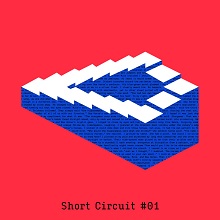We call it Quicksand Street, despite what the road signs say. Where the sidewalks should be, two long columns of dirt reside, that kick up dust in the summertime. In the spring, when the rain really ... [+]
The Secret Rules for Children of Priests
Rule Number 1: When asked about your parentage, give suitably vague answers.
It was Jimmy Doogan, a boorish kid with freckles spread like flak across his face, who had been the first to inquire as to my father's whereabouts. I knew I couldn't claim the pub, or the off-track, because those fathers were just absent, not apparitions.
"He died," I told him. "In the war."
"Horse shite," he replied. And it most certainly was. Ireland hadn't fought in all that many wars, save those against ourselves, which we usually managed to lose. I later amended my story to say that my father had been lost to "The Troubles." Usually that was enough; a topic so charged it seemed to make most back-peddle. Giving the sign of the cross in his memory helped, too. People never knew what to do once you invoked the Holy Trinity.
The truth was, my father, and Jimmy Doogan's Father, that of the capital F variety, were one and the same. We both saw him just as often, every Sunday, and we'd both learned to fear him in ways our nascent brains had yet to fully comprehend.
"Yer Ma got plastered and now yer a bastard." The Prod kids from Shankill used to chant. Even at our most crass, my countrymen tend to be lyrical. Usually, I could stop the chants with a well-placed rock. Or I could really hit home with the Orangies and tell them my father was with the IRA and if they didn't shut their mouths he'd silence their whole families with a widowmaker. It had all the subtly of a thunderclap, but so did most of the Bible.
Once, in Church, my father, the parish's Father, stopped at our pew and stared at me for a long spell. His jaw was hard set and his eyes were the pale, blue-green of carrion crow eggs: just like mine. "Keep the collection plate moving," he'd said.
Rule Number 2: Don't ask too many questions.
My mother, Dolores, she of the raven hair and the booming voice, never wrote it down, these rules for behaving in a fatherless world. To us it was like the Latin Mass: it was not meant to be understood, but internalized and felt on some deeper level.
That didn't stop the questioning, at least in my younger years. When it came to my father, I used to seek answers like a blind-drunk playing darts. I'd throw questions out wildly, and wait to see by the reactions whether anything had actually hit its target.
"Who's that parcel from, Ma?" (I knew full well it was the monthly cash allotment from the Church.)
"Why can't I be in the nativity play this year?" (A dim bluff, as no flesh and blood 12-year old would ever make such a request.)
"Who was your first kiss, Ma?" (This dart had landed a bit closer to the bull's eye and earned me a walloping.)
After that we didn't ask many questions in our house. Not I of my mother, nor she of me. I never weathered the "where have you been" or "where are you going" interrogations like my friends did. Dolores's motherly concern was usually distilled down to a gesture: a sigh, a down cast eye, or the tired wave of a cigarette.
Rule Number 3: Destroy all evidence.
Of all the rules, this had been the hardest for Dolores and me to follow. Sure, we consigned all the envelopes scrawled with the Church's return address to the rubbish bin. Once, a locket he had given her during their brief affair was flung into the River Lagan as I looked on, wondering if I'd be next to feel the slate gray waters drinking me downward. My birth certificate, it seemed, had just gone missing. But, I knew she saved all the letters he'd ever sent her, even as they slowed in frequency. They were in a locked box above the mantle, and when I'd smell the peat fire spark late into the evening, I knew she was re-reading them by its light. When the letters stopped coming altogether, she burned them in that same flame.
I kept one memento, a ripped photo from my birth, its polaroid blur giving the room at the Magdalene women's hospital the look of a sauna. In it, my mother holds me at a distance, appraising me like suspicious curio. In reality, she was handing me over to him, who lay just beyond the torn edges of the photo. It was the only time he ever held me. I imagined I could see his shadow on the wall. A shadow was better than nothing. The photograph eventually made it into the fire, too. When you burn a polaroid, its fumes smell of butterscotch and nail polish. Its edges buckle and blacken into shiny obsidian.
Rule Number 4: Be a God-fearing Churchgoer
We attended Church, dutifully and without protest, and we always sat in back, so as not to upset the pulpit. I would watch my sire, wrapped in his white and gold vestments, preaching in jeweled, stained-glass light, week after week, waiting for the day when his chosen scripture reading would be First, Timothy 5:8, but knowing deep in the empty pit of my stomach: that day would never come. In nomine Matris et Filia et Iocus Sancti.

